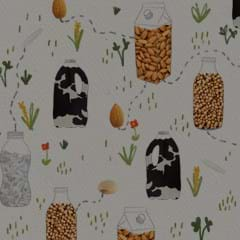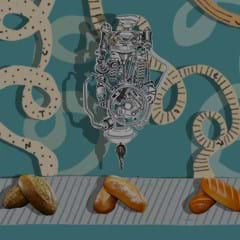Will alcohol make you live longer? Probably not, but you may have seen the headlines suggesting otherwise – such as the one about how “Drinking three glasses of champagne per week could help stave off dementia and Alzheimer’s disease.” Champagne as preventative medicine? That’d be nice.
The aforementioned headline, the kind we tend to remember, appeared in 2015 but was actually about a study published in 2013. Variations on the “bubbly boosts brain power” theme can still be found on myriad online publications and pop up regularly on social media.
They mostly refer back to a study by researchers at Reading University, which found that rats fortified on champagne were better at remembering how to find a treat in a maze than rats given the alcohol-free drink. In the accompanying press release, Professor Jeremy Spencer was quoted saying: “This research is exciting because it illustrates for the first time that moderate consumption of champagne has the potential to influence cognitive functioning such as memory.”
In rats, that is, not people – and if you are reading this you’re not a rat. As the NHS neatly pointed out in its Behind the Headlines series, “A slightly improved maze performance in a small number of rats does not necessarily translate into humans having a reduced risk of dementia from drinking champagne.”
Also, the rats drank the equivalent of what would be, in humans, 1.3 small glasses of champagne a week, not three glasses. By all means drink 1.3 small glasses of champagne a week. It probably won’t do you any harm – and not much for your cognitive performance either.
The “Drinking Alcohol Helps You Live Longer” headlines keep coming. Early in 2018, they picked up on the findings of the 90+ Study presented at the American Association for the Advancement of Science’s annual conference. Conducted by researchers at the University of California, Irvine, the study looks at successful brain aging among those who have reached 90 years of age, with the research so far suggesting that moderate drinking is associated with a longer life.
The researchers also published a study in 2007, also looking at seniors, that found those who drank two alcoholic drinks a day (it didn't matter what kind) had a 15 percent reduced risk of death compared to non-drinkers. Dr. Claudia Kawas, a professor of neurology and neurobiology at the University of California, said at this year’s conference: “I have no explanation for it ... but I do firmly believe that modest drinking is associated with longevity.”
She also said: “Keep in mind that I start studying people when they’re 90. I think it’s very likely that individuals who have very excessive alcohol intake at younger ages don’t even make it to their 90s.”
Can booze really be good for you?
Maybe, a little bit, in some people. A large study published in 2017 in the Journal of the American College of Cardiology surveyed 333,000 people about their lifestyle habits and tracked them for an average of eight years. It found that light and moderate drinkers (14 or fewer drinks per week for men and seven or less for women) were about 20 percent less likely to die from any cause during the study’s follow-up period, compared to abstainers.
Numerous studies in recent decades suggest that lifetime teetotalers might die earlier than light to moderate drinkers, but the underlying reasons for this are unclear and the subject of ongoing scientific debate. It’s hard to separate the benefits of moderate drinking from the other lifestyle factors, and it could be that moderate drinkers have higher incomes and stronger social networks, both of which are associated with better health and longevity. Other researchers have argued that abstainers might have pre-existing health conditions, which increases their risk of dying early.
The study above got around this, however, by comparing current drinkers to lifetime abstainers, to avoid what they call “abstainer bias” and “sick quitter phenomenon”. Their findings supported previous evidence that light-to-moderate drinking “might be protective, especially for [cardiovascular disease]...” But – and it’s a big but – “heavy or binge drinking has serious health consequences, including death.”
The authors also note that an association between mortality and alcohol consumption does not establish a cause-and-effect relationship, or that not drinking is bad for you.
It’s also worth noting that even if alcohol taken in moderation is good for health, it may depend on the site of the body. Alcohol consumption is now linked with several types of cancer, of the oropharynx (a part of the throat), the larynx, the esophagus, the liver, the colon and the rectum, and even moderate drinking (particularly among adolescents and young women) has been consistently associated with increased risk of breast cancer.
A study published last year in the BMJ suggests that even moderate alcohol intake affects the brain, and not (like those champagne-sipping rats) in a good way. In this long-term study researchers from the University of Oxford and University College London assessed the cognitive performance of 550 men and women over 30 years. They then used MRI scans of their brains to look at the size of the hippocampus – the seahorse-shaped area of the brain associated with memory. They found a number of indicators pointing to the negative impact of booze on the brain, including hippocampus shrinkage: 35 percent shrinkage on the right side of the hippocampus in abstainers, a 65 percent shrinkage among those who drank on average between 14 and 21 units a week, and 77 percent for those who drank 30 or more units a week.
The team also found that white matter (the part of the brain that connects different areas of grey matter) was of poorer quality in people who were drinking more. They didn’t find any evidence of a protective effect of light drinking over abstinence on brain structure or function. But reaction to the study has been mixed, suggesting we should probably be as wary of bad news headlines (“moderate drinking causes brain damage!”) as we would be of the good news headlines (“champagne protects against dementia!”).
The link between alcohol and health is complicated, but this is what the science tells us:
- Too much drinking brings risk of early death
- There’s no evidence abstaining will kill you
- There’s some evidence that light to moderate drinking might – might – have a protective effect on your heart
- But, the evidence is not clear enough to suggest you should start drinking for health reasons.
Basically, if you like a drop, it still comes down to moderation. But that’s not much of a headline, is it?
If you want more health and fitness inspiration simply sign up to Fit Planet and get the freshest insights and advice straight to your inbox.







